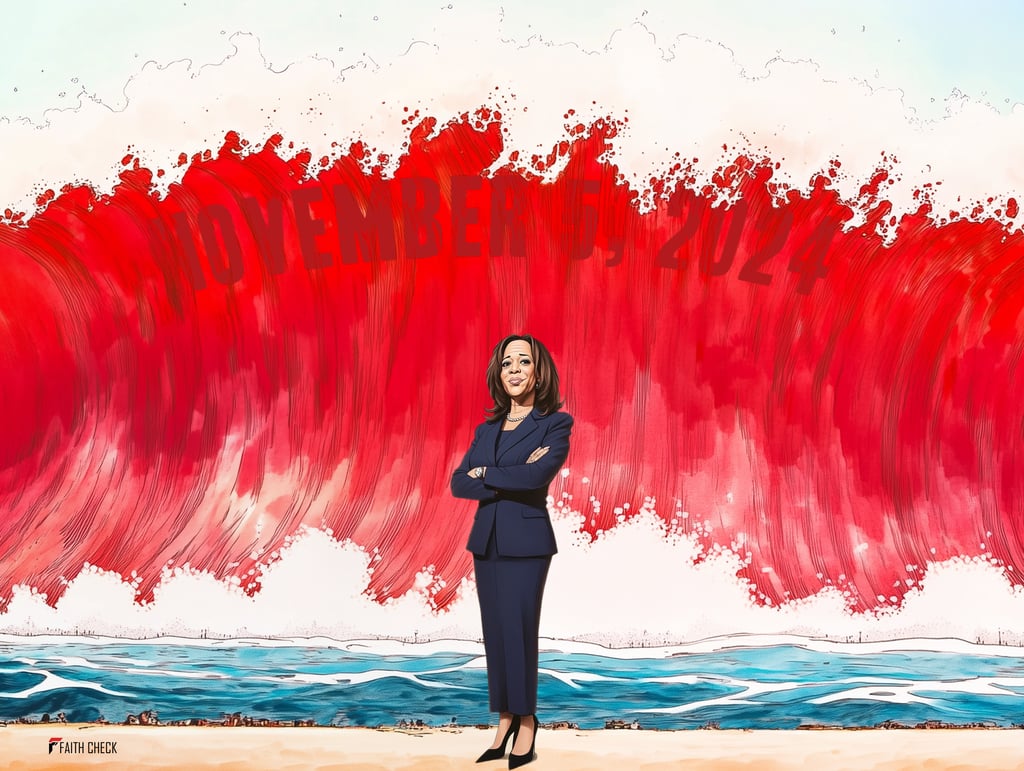'It's the Policies, Stupid." Why Trump Won Everywhere
Everyone is trying to blame the candidate and messaging, when the reason for Trump's victory was obvious.
NEWS
11/8/20243 min read


On November 5th, Americans voted for common sense policies and rejected Bidenomics. Not so writes Derek Thompson of The Atlantic.
Democrats are scrambling to make sense of the Red Wave by blaming the candidate, poor messaging, and the covid-19 pandemic. Policies had nothing to do with their historic loss, they argue.
What Thompson gets right: This was a mandate election, driven by the broadest and most diverse coalition of Americans in history.
Other than Atlanta, which moved left, many of the largest U.S. metros moved right even more than many rural areas. You cannot explain this shift by criticizing specific campaign decisions (If only she had named Pennsylvania Governor Josh Shapiro her vice president…). You can’t pin this shift exclusively on, say, Arab Americans in Michigan who voted for Jill Stein, or Russian trolls who called in bomb threats to Georgia.
What Thompson intentionally overlooks: The economy was already starting to rebound as some states simply lifted COVID-19 restrictions and lockdowns.
The pandemic was a health emergency, followed by an economic emergency. Both trends were global. But only the former was widely seen as international and directly caused by the pandemic.
Inflation proved as contagious as a coronavirus. Many voters didn’t directly blame their leaders for a biological nemesis that seemed like an act of god, but they did blame their leaders for an economic nemesis that seemed all too human in its origin. And the global rise in prices has created a nightmare for incumbent parties around the world.
While he frames the pandemic as both a health and economic emergency with global impacts, he misses the critical point: many of economic hardships arose not from the virus itself, but from the actions taken by political leaders to contain it.
All Biden had to do was let the economy re-open rather than enacting policies that prolonged restrictions and fueled hyperinflation.
Instead, from day one, the Biden-Harris administration sought to leverage pandemic fears to enact a reckless and radical agenda.
Just three months into office, Joe Biden signed the $1.9 trillion American Rescue Plan extending covid cash payments to allow low-to-medium income households to stay unemployed. Even Democrat economists publicly warned the administration the plan could actually make the country’s economic condition worse.
They followed that up with a $1 trillion infrastructure bill in November 2021.
Unburdened by fiscal responsibility, the Democrats rammed through the Build Back Better Act with a price tag of $2 trillion. President Biden signed it into law August 16, 2022.
Inflation surged to a 40-year high of 9.1% in June 2022 raising the cost of almost everything by over 20% on average.
In response, Democrats assured Americans that inflation was “transitory,” blaming supply-chain disruptions.
But the data undermined their messaging when comparing Republican-led states vs Democrat-led ones.
Consider Florida, which re-opened in the summer of 2020. By the time Joe took office, the major ports in the sunshine state were almost back to normal operations. Over on the West Coast, California ports saw a record backlog due to labor shortages. Those labor shortages were the direct result of Democrat lockdowns, covid restrictions, and the Biden administration vaccine mandate.
The Federal Reserve went into emergency mode and raised interest rates faster and higher than ever before. While that eventually lowered the rate of inflation, the cost of living remained unaffordable.
The Biden-Harris team took no action, insisting that we've got it all wrong. “Bidenomics is working.”
A majority of the American people rejected their messaging because they connected Biden’s policies to the unaffordable economy. When Kamla Harris was asked on The View if she would have done anything differently than Joe Biden, she replied, “not a thing comes to mind.” In that moment, it’s possible that hundreds of thousands of undecided voters shifted to Trump.
Meanwhile, the Democratic Party’s response to economic concerns came across as dismissive, leading many Americans to believe they were being misled about the health of the economy. But what choice did Biden and the Democrats have? Admitting their policies were to blame could lead to election losses for years to come.
On November 5th, 2024 a record number of voters decisively rejected the policies of Kamala Harris and the Democratic Party.
This is what swept President-elect Donald J Trump to a second term in a historic Red Wave.

Faith Check News
Curating daily news stories for Christian readers.
CONNECT OTHERS
© 2025. All rights reserved.
